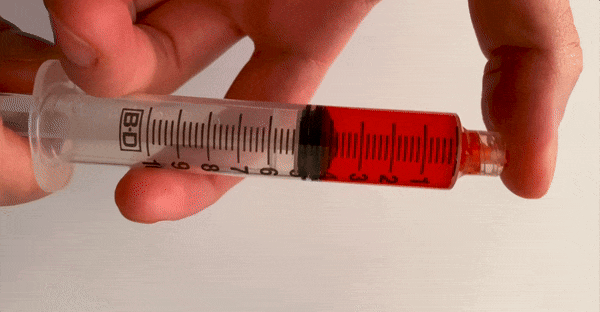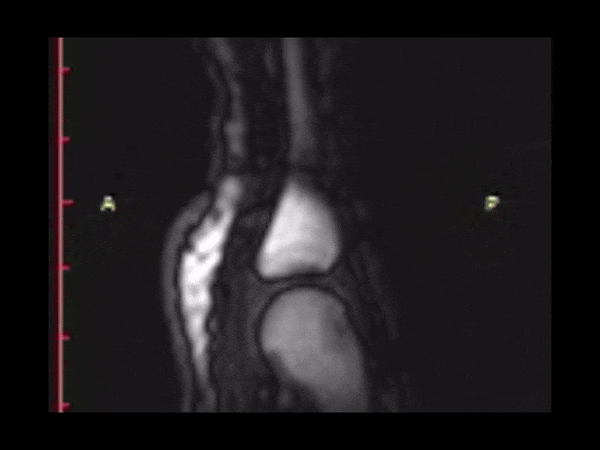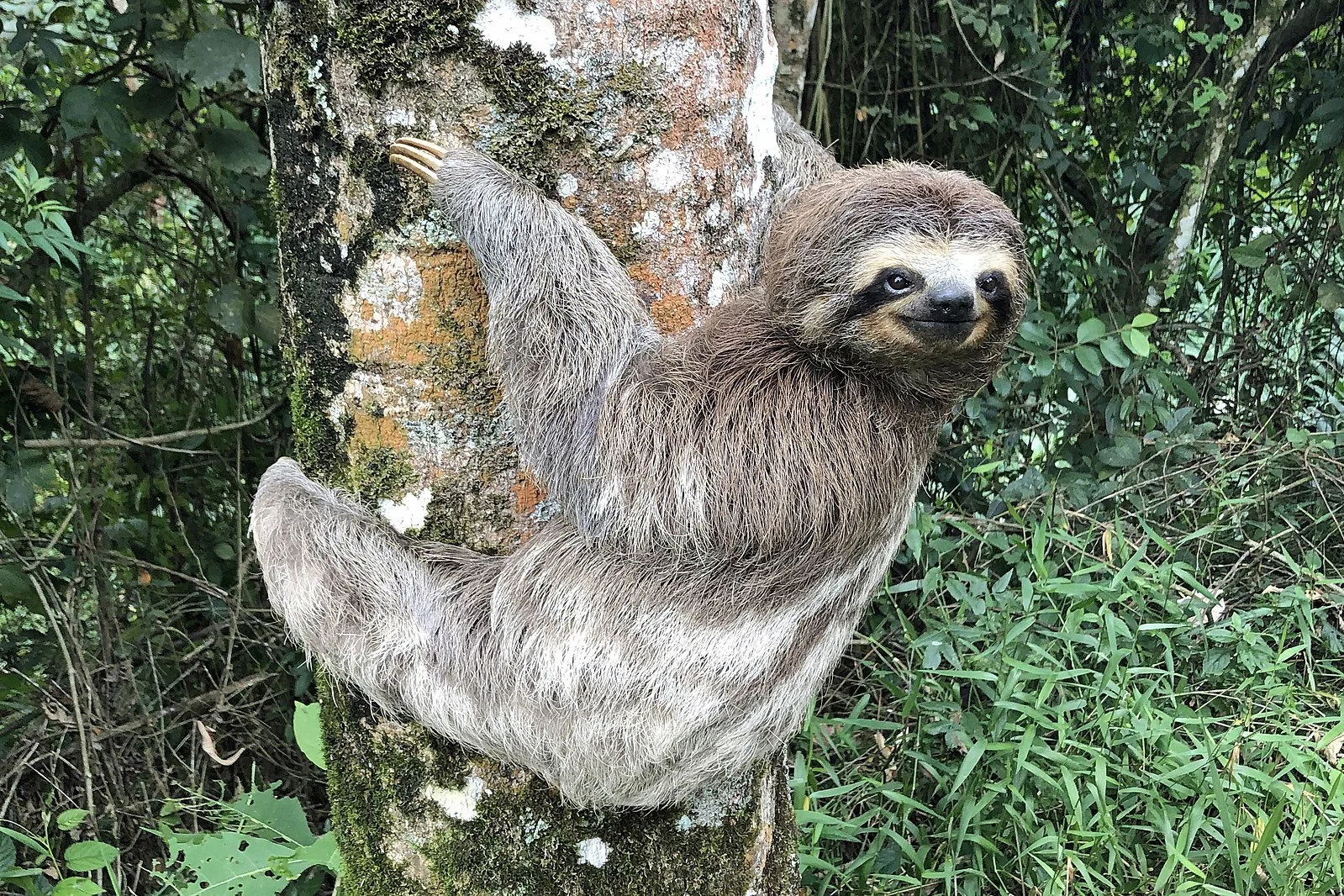Why do joints crack?
The short answer
The two most common reasons why joints crack are because a gas bubble is forming or collapsing within the fluid in your joints, and that your ligaments and/or tendons are rolling over each other. Cracking your joints, as long as there is no pain, is harmless to your body.
The long answer
*CRACK* *POP* *CREAK*
These aren't necessarily comforting sounds you might want coming out of your body, but as it turns out, joints cracking is perfectly normal (and safe and enjoyable to some, as we'll learn later).
The mystery behind joints cracking is a tough nut to crack.
Let's crack down on joints cracking.
Okay, let's get cracking on joints cracking.
I'll spare you cracking up over my first draft puns. Let's dive into the two main reasons why your joints crack:
Reason #1: A gas bubble is forming or collapsing within the fluid in your joints.
The most common and most flexible joints in your body are known as synovial joints. Some synovial joints include your fingers, toes, knees, hips, and other bendy appendages.
"907 Synovial Joints" by OpenStax College is licensed under CC BY 3.0.
Because they must be so flexible, synovial joints have lots of lubrication in the cavities of joints to keep things slick and moving. Fun fact: This lubrication, known as synovial fluid, has the consistency of thick egg whites.
There are gases, including oxygen, nitrogen, and carbon dioxide, found naturally dissolved in this synovial fluid. When you pull on the joints to crack them, the joint cavity with the synovial fluid expands which creates a low-pressure environment. In this low-pressure state, the gasses make a bubble in the synovial fluid.
Here's a demonstration of how pulling to expand the volume of the container of liquid causes gas bubbles to form:
GIF from "Arthritis Doctor Explains: CRACKING KNUCKLES GOOD or BAD", an excellent video on this topic!
It's hypothesized that the sound of cracking your joints is caused by either the rapid formation of these bubbles or the rapid collapse of these bubbles.
Researchers have managed to capture to formation and collapse of knuckle bubbles (great band name) on camera using an MRI. See the actual MRI imaging from the 2015 study below. In this GIF, you can watch as a black spot forms within the joint cavity. That black spot is a gas bubble.
"Real-Time-Visualization-of-Joint-Cavitation-pone" by Kawchuk G, Fryer J, Jaremko J, Zeng H, Rowe L, Thompson R is licensed under CC BY 4.0.
Unfortunately, the MRI machine doesn't record the images fast enough to determine whether the cracking sound is occurring as the bubbles are forming or as they are collapsing. But now we do know that the sound of joints cracking is due to gas bubbles in the synovial fluid.
Reason #2: Your ligaments and/or tendons are rolling over each other.
Gas bubbles aren't the only reason you hear snap, crackle, pops as you bend your joints. Another common reason for creaky joints is due to your ligaments and tendons rolling over each other.
Quick anatomy lesson: Ligaments and tendons are both connective tissues that help hold your joints together. The main difference is ligaments attach bones to bones, and tendons attach muscles to bones.
"MCL ligament (highlighted)and semi-membranosus muscle" (modified) by sportEX journals is licensed under CC BY-ND 2.0.
As you move your body around, these tissues can snap or slide over bones and other ligaments and tendons. This slip and slide can produce a cracking sound. For example, if you've ever had your knee crack as you went to stand up, that would be because of a ligament or tendon moving around.
One way to tell the difference between a crack caused by a gas bubble or a crack caused by tendons and ligaments if checking whether it is quickly repeatable. Gas bubbles need time to accumulate again in the synovial fluid, so if you can keep producing a snapping sound every time your roll your wrist, that would be because of the connective tissues.
🧠 Bonus brain points
Why do we crack our joints?
There are a handful (sorry for the pun) of reasons why we crack our joints:
Cracking your joints feels good: Ask a joint cracker and they'll tell you that it simply feels good. It's theorized that cracking stimulates the nerve endings near the joint and can release endorphins; however, this theory hasn't yet been proven.
Cracking your joints leads to a temporary increase in mobility: Cracking your joints expands the joint cavity and can provide a sensation of release, allowing them to feel looser and more mobile after cracking.
Cracking your joints can become a habit: Due to the positive feelings and irresistible (to some) sound, some people develop a habit of cracking their knuckles.
Is cracking your joints bad for you?
No. Despite the common warning that that cracking your knuckles causes arthritis, there is no evidence to support this. But we do have some evidence to support the notion that cracking your knuckles is harmless.
Determined to prove "his mother, several aunts, and, later, his mother-in-law" wrong, medical doctor Donald Unger ran a knuckle-cracking experiment on himself. For 50 years, Unger cracked only his left hand's knuckles every day, which totaled up to at least 36,500 knuckle cracks. At the end of the experiment, Unger found that there was no arthritis in either hand.
That being said, if your knuckle cracking is accompanied by any pain, swelling, numbness, or stiffness, it's probably best to take a beat and go see a doctor.
Curious about how the world works?
Today You Should Know is a free, weekly email newsletter designed to help you learn something new every Friday.
Subscribe today 👇
Check out some other curious questions:
Sources
Deshauer, S. (2021, April 4). Arthritis Doctor Explains: CRACKING KNUCKLES GOOD or BAD. YouTube. https://www.youtube.com/watch?v=5O4qXQj-o9o
Horton, J., & Bang, A. (2023, May 31). Snap! Crack! Pop! Why Your Joints Make Noise with Andrew Bang, DC. Cleveland Clinic. https://my.clevelandclinic.org/podcasts/health-essentials/snap-crack-pop-why-your-joints-make-noise-with-andrew-bang-dc
Kawchuk, G. N., Fryer, J., Jaremko, J. L., Zeng, H., Rowe, L., & Thompson, R. (2015). Real-time visualization of joint cavitation. PLOS ONE, 10(4). https://doi.org/10.1371/journal.pone.0119470
Nelsen, E. (2015, May 5). Why do your knuckles pop? - Eleanor Nelsen. YouTube. https://www.youtube.com/watch?v=IjiKUmfaZr4
Science Reference Section. (2019, November 19). What causes the noise when you crack a joint?. The Library of Congress. https://www.loc.gov/everyday-mysteries/biology-and-human-anatomy/item/what-causes-the-noise-when-you-crack-a-joint/
Singleton, H. (2024, May 3). Why cracking your knuckles is so satisfying—and if it’s really a bad habit. National Geographic. https://www.nationalgeographic.com/science/article/is-cracking-your-knuckles-a-bad-habit
Unger, D. L. (1998). Does knuckle cracking lead to arthritis of the fingers? Arthritis & Rheumatism, 41(5), 949–950. https://pubmed.ncbi.nlm.nih.gov/9588755/
Zimlich, R., & Chandrasekaran, A. (2023, October 24). Improving and Increasing Synovial Fluid. Verywell Health. https://www.verywellhealth.com/how-to-increase-synovial-fluid-5114374








It’s like an American accent but with calendars.